Bulgaria
Bulgaria is a European, Balkan, Black Sea and Danube country. It is located in southeastern Europe, and occupies the eastern part of the Balkan Peninsula.
Historically, it has known Psychomotricity since 25 years ago, but its development as a sustainable practice available for a wide range of professionals began steadily after 2019.
Professional Framework in Bulgaria
In Bulgaria, Psychomotricity is practiced by
Professionals from therapeutical, pedagogical or social fields with further education in the domain of Psychomotricity
Psychomotricity is
established
The field of Psychomotricity is widely known, appreciated and respected in practice.
Educationin Bulgaria
In Bulgaria, there is no initial education.
In Bulgaria, professionals seeking a diploma as psychomotor specialists are typically required to have completed an undergraduate degree in fields such as Psychology, Physiotherapy, Occupational Therapy, Speech Therapy, Pedagogy, Health, or related disciplines.
PRIVATE INSTITUTES
Course of psychomotor therapy
For psychologists, physiotherapists, occupational therapists, speech therapists
700 hours
2,6 years
Bulgarian
Several places in Bulgaria – Bulgarian association for
development of Psychomotricity (BAPMT)
Course of psychomotor education
For teachers, kindergarten teachers
200 hours
1 year
Bulgarian
Several places in Bulgaria – Bulgarian association for
development of Psychomotricity (BAPMT)
There are also other organizations, such as the Bulgarian Society for Lacanian Psychoanalysis, that offer additional introductory training in Bernard Aucouturier’s analytical psychomotor method.
Working
in Bulgaria
Get your diploma recognition
In Bulgaria, as the profession is NOT regulated, you can work there according to the agreement of an employer.
Get to know the professional association
Psychomotricity
in Bulgaria
Psychomotricity has been known in Bulgaria since 1997. For 20 years (from 1997 to 2017) it has been practiced in the modalities “Relational Psychomotricity” and “Analytical Psychomotricity”.
As of 2019, we have trained specialists in “Integrative Psychomotricity” by German association dakp Aktionskreis Psychomotorik e.V.
Nowadays, “Integrative Psychomotor Therapy with children “ and “Educational Psychomotricity“ are practiced by professionals trained according to European standards and supervised by psychomotor profesionalists according to the standards of European academic institutions.
Turning points

1989
Bulgaria's Transition to Democracy
Methods focusing on the body and movement have been used unsystematically and sporadically in Bulgaria since 1989 in medical rehabilitation, special pedagogy, education of children with specific sensorimotor and physical disabilities, etc.
The application of a holistic psychomotor approach becomes possible after the democratic changes in Bulgaria, when institutionalism and segregation begin to give way to individual and integrated approaches to working with children and adults with disabilities. This process is reflected in many areas that today have a valence for psychomotor work. Policies of deinstitutionalization of children deprived of parental care and of children with disabilities have taken place.
These processes open up the possibility of liberalisation, humanisation and integration of people with psychomotor deficits. They also open spaces that begin to be filled by various professionals, enthusiasts, visiting professors and local pioneers. One such pioneer is Ms. Vesela Banova.
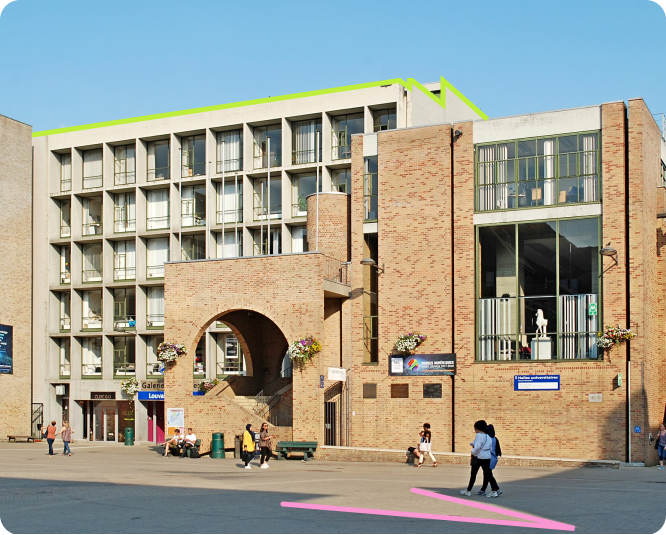
1996
Roots in Belgium
Psychomotricity in its narrow and newest sense has been known in Bulgaria since 1996.
The Bulgarian practice of “Relational Psychomotricity” has its roots in Belgium, where Vesela Banova, a clinical psychologist and psychoanalyst, completed a one-year specialization in “Psychomotor Education” from 1996 to 1997.
At the Faculty of Psychology and Educational Sciences at the Catholic University of Leuven, she trained under the guidance of Pascal Didrich, a follower of Bernard Aucouturier.
Banova starts to organize psychomotor trainings for people working with children in the homes for medical and social care for children.
Banova’s project in Bulgaria is driven by her interest in Lacanian psychoanalysis and by the political decision of the Bulgarian government in the late 1990s, under pressure from the EU and pre-accession processes, to radically reform childcare in analogy with other post-Soviet countries.
She has been involved in equipping 32 psychomotor rooms in all of them in Bulgaria. Today the practice is unfortunatly abandoned in most of them .
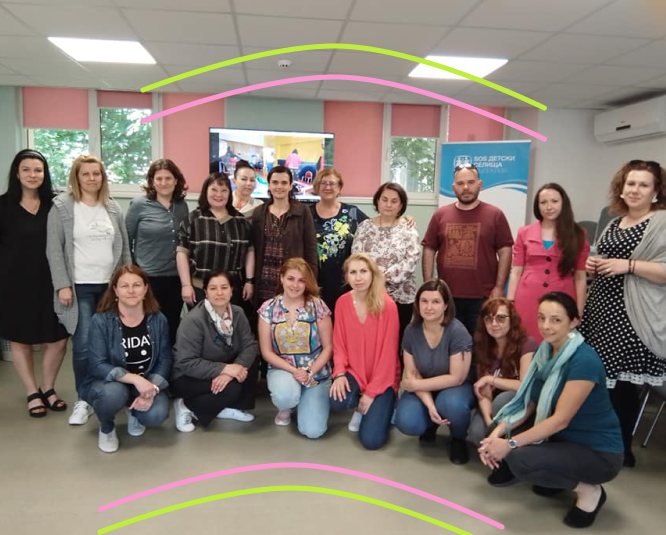
Photo taken from the official page of the psychoanalytic institute TOLK.
2017
Renewal of Banova's courses
Since Bulgaria joined the EU in 2007, hopes for adopting Western humanitarian values have faded, leading to rising Euroscepticism. Growing social inequalities have turned human-centered care into a market luxury, with private services overshadowing public ones. This shift, along with psychomotricity’s absence in educational curricula, has limited its integration into Bulgaria’s care system, leaving it primarily in the hands of private practitioners.
Against this background Vesela Banova decides to renew her courses in “Relational Psychomotricity” and trains professionals from different professions in “Introductory Level” through her Psychoanalytic Institute TOLK and Bulgarian Society for Lacanian Psychoanalysis.
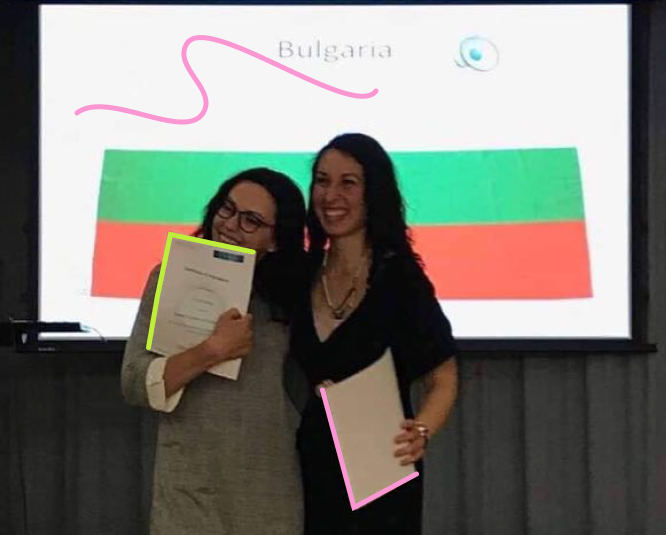
Since 2017
Restart
Until 2017, the work of professionals who use psychomotor practices in their work was supervised solely by veterans of the profession who were formed in a psychoanalytic paradigm and had a psychoanalytic view of psychomotor work.
In the meantime, then, specialists with different professions (therapists, psychologists, educators) who have had contact with training and practice both in Bulgaria and in Europe, are making attempts to introduce Psychomotricity as a holistic bodily and motor oriented, focused on an integrated perspective of human being educational, nurturing and therapeutic method to support child development.
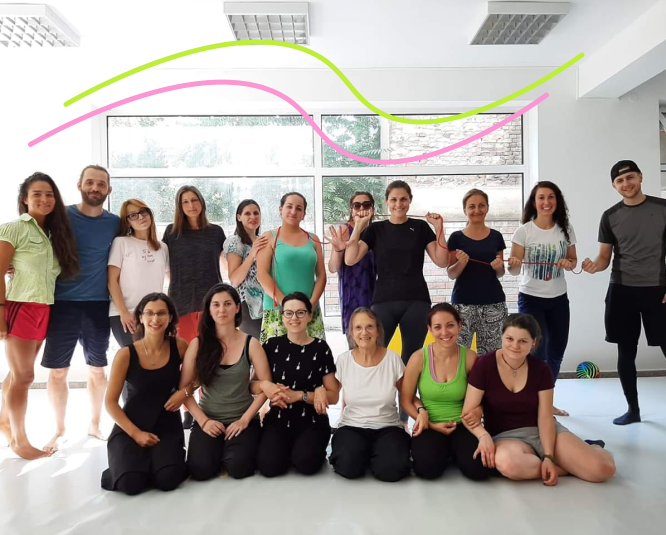
2019
First three-year training
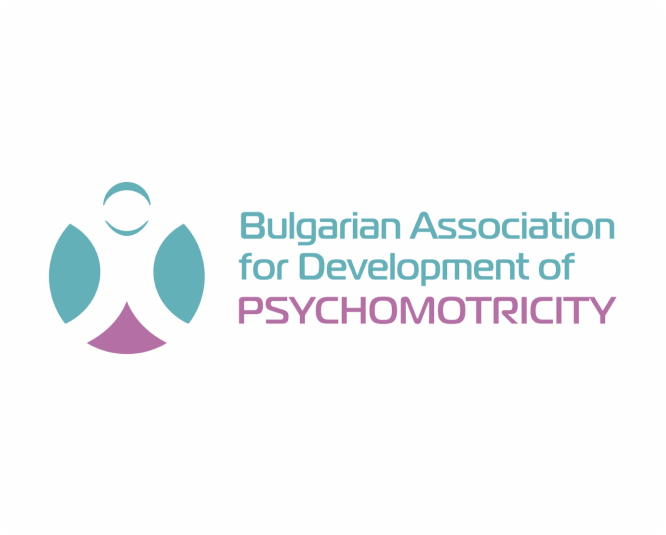
2020
Association BAPMT
2024
European Forum of Psychomotricity
FAQ
Here are few answers to frequently asked questions
in order to understand better Psychomotricity in Bulgaria.
Do I need some special authorisation to practise in Bulgaria?
Since the profession of psychomotrician or psychomotor therapist is not recognized or regulated in Bulgaria, you can’t really work under those titles.
However, you can apply the approach and tools in other roles.
In which fields can I work as a psychomotor therapist in Bulgaria?
Pedagogy (kindergartens, schools), as a psychomotor educator
Private Practice, as a psychomotor therapist
Is psychomotor therapy financially covered in Bulgaria?
Since psychomotor therapy is not recognized in Bulgaria, there is no financial cover.
Is psychomotor therapy subject to a medical prescription in Bulgaria?
In Bulgaria, psychomotor therapy is not subject to a medical prescription.